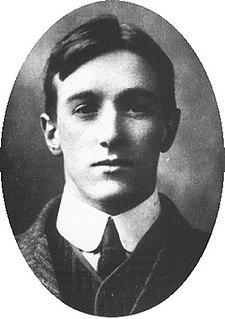
William Henry Harvey, FRS FLS was an Irish botanist and phycologist who specialised in algae.
Creative visualization is the cognitive process of purposefully generating visual mental imagery, with eyes open or closed, simulating or recreating visual perception, in order to maintain, inspect, and transform those images, consequently modifying their associated emotions or feelings, with intent to experience a subsequent beneficial physiological, psychological, or social effect, such as expediting the healing of wounds to the body, minimizing physical pain, alleviating psychological pain including anxiety, sadness, and low mood, improving self-esteem or self-confidence, and enhancing the capacity to cope when interacting with others.
The Murchison Award, also referred to as the Murchison Grant, was first given by the Royal Geographical Society in 1882 for publications judged to have contributed most to geographical science in preceding recent years.
The 12th South Carolina Infantry was an infantry regiment that served in the Confederate States Army during the American Civil War.

The Cambrian Archaeological Association was founded in 1846 to examine, preserve and illustrate the ancient monuments and remains of the history, language, manners, customs, arts and industries of Wales and the Welsh Marches and to educate the public in such matters. The association's activities include sponsoring lectures, field visits, and study tours; as well as publishing its journal, Archaeologia Cambrensis, and monographs. It also provides grants to support research and publications.
The St. Andrew's Society of Hong Kong is an elite Scottish club in Hong Kong established in 1881.
The Burkitt Medal is awarded annually by the British Academy "in recognition of special service to Biblical Studies". Awards alternate between Hebrew Bible studies and New Testament studies. It was established in 1923 and has been awarded to many notable theologians. It is named in honour of Francis Crawford Burkitt.
The above names are taken from (and reported as in) the British Academy Annual Reports, found in the Proceedings of the British Academy for the years 1933 to 1939. The names for the years 1930–32 are from Proceedings of the British Academy, vol. xviii (1932), pp. vii–x.




